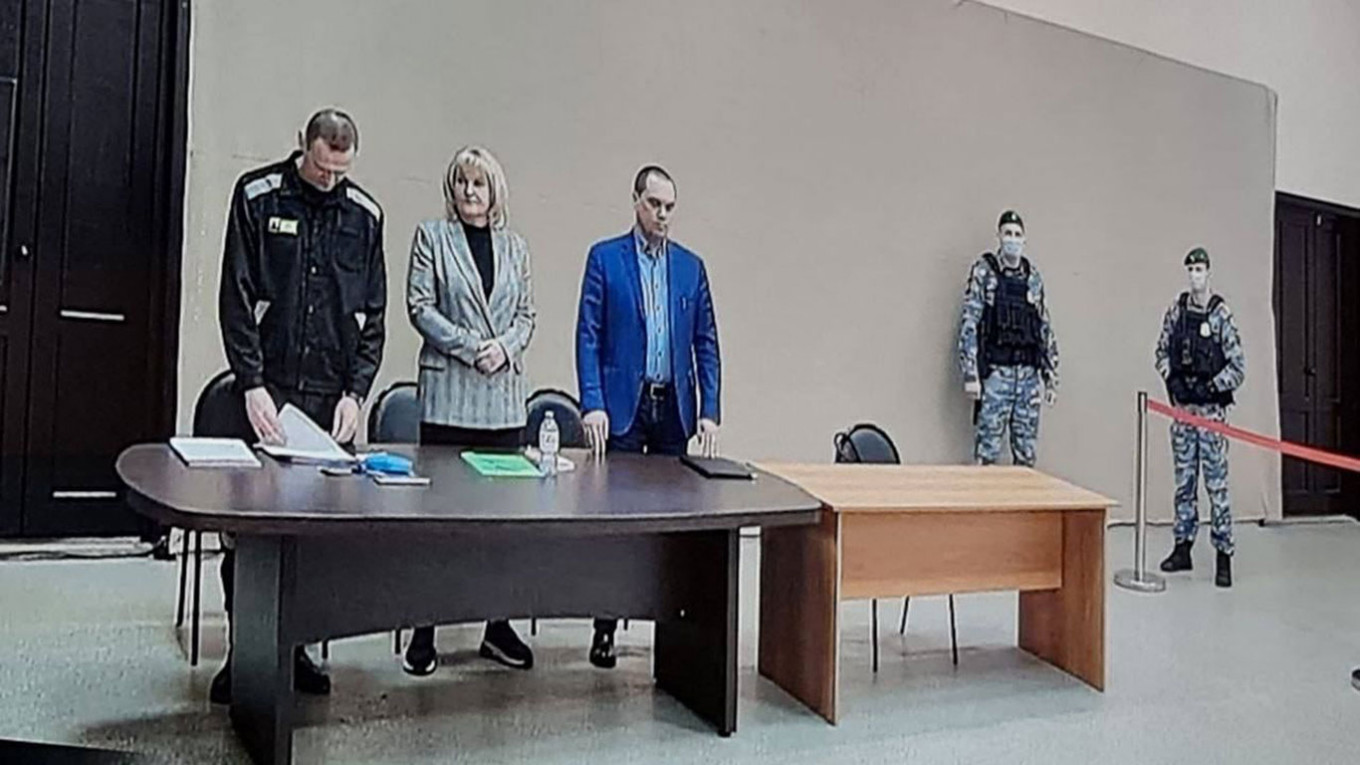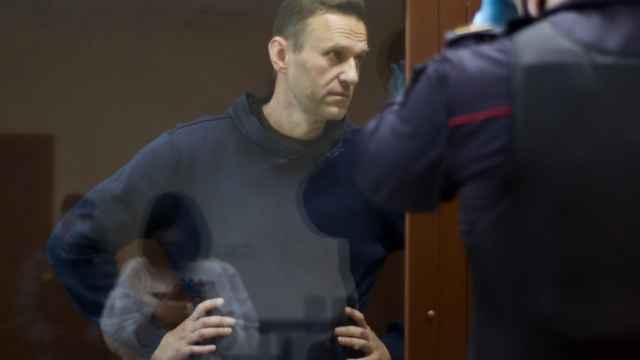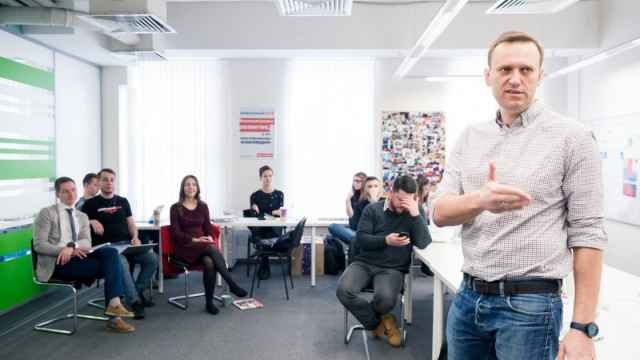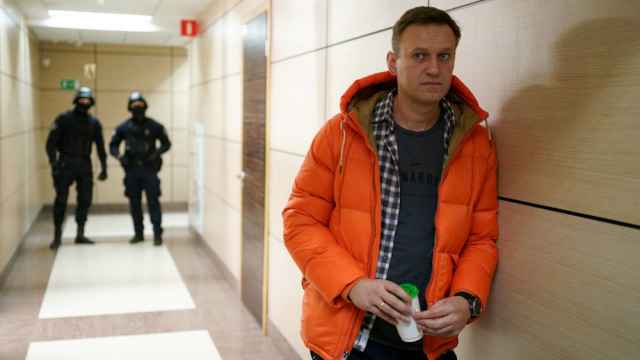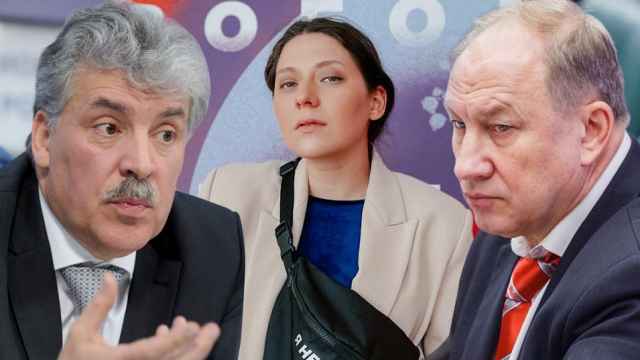A Moscow court has sentenced jailed Kremlin critic Alexei Navalny to nine more years in prison on fresh charges of embezzlement and contempt of court, raising fears among allies that his life may be in danger in a remote colony after his near-fatal poisoning.
Judge Margarita Kotova on Tuesday found Navalny guilty in a makeshift court inside the maximum-security prison in Pokrov 100 kilometers (60 miles) east of Moscow where he is already serving a 2.5-year sentence for violating parole in poisoning recovery.
The court sentenced him to nine years in maximum-security prison and ordered him to pay a fine of 1.2 million rubles ($11,500).
In an Instagram post published after the sentencing, Navalny, President Vladimir Putin's main domestic critic, said the Russian president is "afraid of the truth."
"Putin is afraid of the truth, I have always said this. Fighting censorship, relaying the truth to the people of Russia always remained our priority," Navalny said.
Navalny's lawyers Olga Mikhailova and Vadim Kobzev were briefly detained outside the makeshift court, the independent Novaya Gazeta newspaper reported.
State prosecutors last week requested that the judge sentence Navalny, 45, to an additional 13 years in prison on charges of fraud and contempt of court.
Investigators accuse Navalny of stealing for personal use more than $4.7 million in donations that were given to his political organizations that were retroactively declared “extremist” last year. That sum was lowered to 2.7 million rubles ($25,800) during the course of the trial.
Navalny’s spokeswoman Kira Yarmysh expressed fears that “Alexei will be face to face with those who have already tried to kill him.”
“And nothing will stop them from trying again,” Yarmysh, who fled Russia last year after being convicted for calling for protests against Navalny’s arrest, tweeted Monday.
“Therefore, we are now talking not only about Alexei’s freedom, but also about his life.”
The United States condemned the court verdict, saying it was an attempt to silence him and distract from the invasion of Ukraine.
"The court's sham ruling is the latest in a series of attempts to silence Navalny," said State Department spokesman Ned Price.
"This disturbing decision... is another example of the Russian government's widening crackdown on dissent and freedom of expression, which is intended to hide the Kremlin's brutal war, and unprovoked war against Ukraine."
Navalny’s trial was held from prison, where he is serving two and a half years for violating a 2014 suspended sentence for embezzlement while recovering from poisoning in Germany.
Russia’s most high-profile opposition figure, Navalny was poisoned in August 2020 with a nerve agent while campaigning in Siberia.
He was immediately arrested upon his return to Russia in January 2021 following treatment in Germany and Russian authorities have since sought to extend his jail term, launching a number of cases against him over the last year.
The new case was launched in December 2020.
On Friday, President Vladimir Putin promoted judge Margarita Kotova, who delivered the verdict against Navalny, to a higher court with immediate effect.
The decision prompted observers to question the legality of Kotova’s ruling Tuesday.
Navalny’s team released a video investigation last week claiming to have obtained call logs that allegedly show the Kremlin’s chief of public relations department calling judge Kotova before and during his trials last month.
AFP contributed reporting.
A Message from The Moscow Times:
Dear readers,
We are facing unprecedented challenges. Russia's Prosecutor General's Office has designated The Moscow Times as an "undesirable" organization, criminalizing our work and putting our staff at risk of prosecution. This follows our earlier unjust labeling as a "foreign agent."
These actions are direct attempts to silence independent journalism in Russia. The authorities claim our work "discredits the decisions of the Russian leadership." We see things differently: we strive to provide accurate, unbiased reporting on Russia.
We, the journalists of The Moscow Times, refuse to be silenced. But to continue our work, we need your help.
Your support, no matter how small, makes a world of difference. If you can, please support us monthly starting from just $2. It's quick to set up, and every contribution makes a significant impact.
By supporting The Moscow Times, you're defending open, independent journalism in the face of repression. Thank you for standing with us.
Remind me later.


